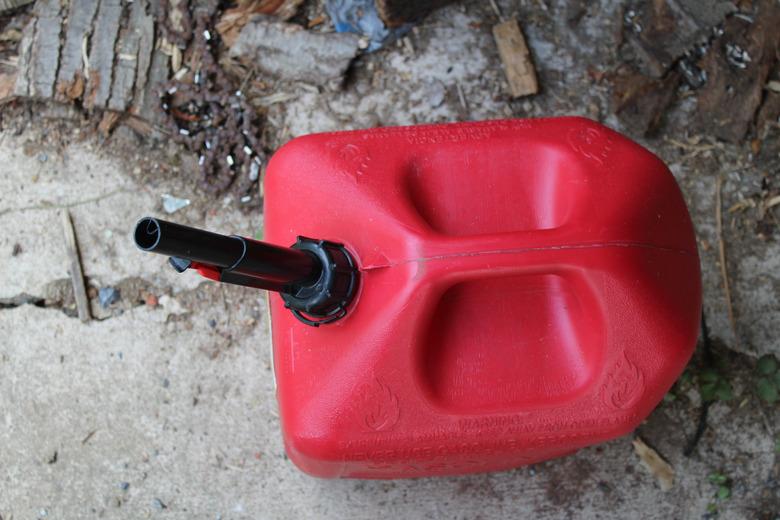How To Dispose Of Gasoline
Highlights
- Gasoline lasts three to six months when stored properly.
- If your gasoline has gone bad, it will be much darker in color than fresh gas.
- You may be able to dilute old, but uncontaminated, gas with fresh gas to get use out of it.
- Most curbside waste pickup services do not accept gasoline.
- Take bad gas to a hazardous waste disposal center.
Wondering how to dispose of gasoline? Maybe you didn't quite use all of the can for your lawn mower before winter or you found an old gas can hidden at the back of the shop. Exposure to oxygen, even safely inside a gas can, makes gasoline degrade and become less combustible over time. When that happens, it's time to get rid of it safely and legally.
What is the Shelf Life of Gasoline?
The shelf life of gasoline is three to six months, as long as it's stored properly. Ethanol blends usually have a shorter shelf life, up to three months, since the ethanol oxidizes quickly. Gasoline with higher ethanol levels tends to go bad even faster. If you have pure gasoline, you can expect it to last at least six months if you store it properly.
When you add fuel stabilizers to the mix, you get more life out of the gasoline. When added to fresh gasoline, a stabilizer fuel additive slows the oxidation process and can make the gas last one to three years. Whether or not you add a fuel stabilizer, always store gasoline in gas cans to help them last as long as possible.
How to Determine if Gasoline is Bad
Age is one determining factor in gasoline, but it can also become contaminated. A visual test comparing fresh gasoline with your older gasoline helps you evaluate it. Place a little bit of fresh gas in one clear glass container and some of the older gasoline in another clear glass container.
Old gasoline looks a little darker than fresh gas and usually has a sour smell. Contaminated gas, even if it's not old, often looks much darker. You might see sediment or sludge in contaminated gasoline. If you have an ethanol blend, you might notice that the gasoline and ethanol separate into distinct layers.
How to Dilute Old Gas
If your gas is old but isn't contaminated, you might be able to reuse it with some fresh gasoline. The old gas on its own might not have the combustibility it needs, but adding fresh fuel to it can make it usable. Use new gas to fill your lawn mower about three-quarters of the way and use the old, but not contaminated, gas to top off the tank. This is the easiest way to get rid of old gas, and it saves you money since you don't have to get rid of the old gas you already bought.
How to Dispose of Gasoline
Contaminated gasoline should be disposed of properly as it cannot be safely used even if you add fresh gas to it. Because most curbside waste disposal services won't take gasoline, you'll need to check for a hazardous waste center in your area — your local waste management company or fire department can point you in the right direction. Verify that the hazardous waste disposal facility accepts old gasoline. Hazardous waste centers will have a designated area where you dump the old gasoline.
Transfer the bad gasoline to an EPA-approved container if it's not in one already. This ensures you can safely transport it to the hazardous waste drop-off location. Be careful when transporting it in your vehicle to prevent it from tipping, and don't smoke while you're working with the gas or transporting it in your vehicle.
Tip
Keep an eye out for household hazardous waste collection events in your area to dispose of your gasoline safely and easily.
What Not to Do When Disposing of Gasoline
Even though gasoline loses its combustibility as it gets older, it's still a hazardous chemical that you need to dispose of properly instead of throwing it away and sending it to a landfill where it can wreak environmental havoc. Never toss old gas in the trash, even in a container — it's highly flammable, corrosive, and can even burn through certain types of plastic, including plastic bags commonly used to line garbage cans. Don't pour gasoline down your drain, in the sewer (via storm drains), in water, or in the ground because it creates a fire risk and contaminates the soil and groundwater. Expect to pay a fine or even face criminal charges if you're caught dumping gasoline.
